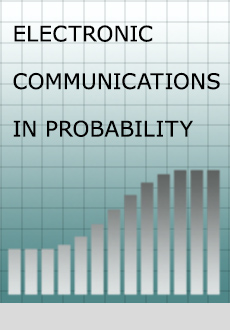Abstract
Filter stability is a classical problem in the study of partially observed Markov processes (POMP), also known as hidden Markov models (HMM). For a POMP, an incorrectly initialized non-linear filter is said to be (asymptotically) stable if the filter eventually corrects itself as more measurements are collected. Filter stability results in the literature that provide rates of convergence typically rely on very restrictive mixing conditions on the transition kernel and measurement kernel pair, and do not consider their effects independently. In this paper, we introduce an alternative approach using the Dobrushin coefficients associated with both the transition kernel as well as the measurement channel. Such a joint study, which seems to have been unexplored, leads to a concise analysis that can be applied to more general system models under relaxed conditions: in particular, we show that if $(1 - \delta (T))(2-\delta (Q)) < 1$, where $\delta (T)$ and $\delta (Q)$ are the Dobrushin coefficients for the transition and the measurement kernels, then the filter is exponentially stable. Our findings are also applicable for controlled models.
Citation
Curtis McDonald. Serdar Yüksel. "Exponential filter stability via Dobrushin’s coefficient." Electron. Commun. Probab. 25 1 - 13, 2020. https://doi.org/10.1214/20-ECP333
Information





